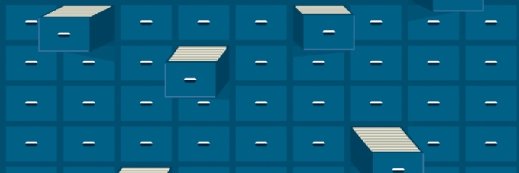
Getty Images/iStockphoto
XenData's tape workaround cuts out egress fees
To help customers avoid costly egress and geo-replication fees, XenData has introduced a new tape archive appliance for local copies that can be moved at much lower costs.
XenData has introduced a tape-based appliance designed to avoid egress or geo-replication fees.
XenData's CX-10 Plus, a cloud archive appliance with local backup to linear tape-open (LTO) tapes, is a gateway to public cloud object storage that replicates locally to tape.
"[Customers] just felt uncomfortable letting go of all of their data, sending it to the cloud," said Phil Storey, CEO of XenData.
Customers are looking for ways to use tiered storage and get costs down because moving data from one cloud to another or back on premises can be very costly, he said.
But the product also comes with the general drawbacks of tape, which include the added risk of human intervention as well as longer access times.
All about the egress
The cloud can keep data in multiple data centers, and enable replication across multiple sites, or geo-replication, to better protect and secure data, but it comes at a financial cost, according to Storey.
As a cloud gateway for backup and archive, customers use the CX-10 Plus's 14 TB HDD cache to upload the data to a public cloud and synchronize it to a local LTO library, Storey said.
The local copy can act as geo-replicated copy without requiring companies to pay extra fees if the cloud is located in a different geographical region, according to Vinny Choinski, an analyst at Enterprise Strategy Group, a division of TechTarget.
But companies can save even more if they want to switch clouds by eliminating egress fees, Choinski said. "If you really want to get [your data] back, there's a lot to be paid for [in] moving that data," he said.
When customers move data from one cloud to the another, they can back their data up to the CX-10 Plus, turn their cloud services off, and then restore their backup to another cloud.
Egress fees can cost $80 to $90 a terabyte if customers are storing a petabyte (PB), Storey said. Even with bulk discounts, customers can expect to pay $60,000 to $90,000 to get a PB of data back.

Price comparison and capabilities
The CX-10 Plus appliance, which will be available next month, starts at $11,950 and includes the 14 TB HDD disk cache that writes to the cloud, according to XenData. The price excludes autoloaders or managed LTO drives, which can be added to reduce human intervention. The appliance ships with on-site support and software licensing for 36 months, and after that, the license subscription amounts to less than $3,000 a year, Storey said.
In the case of disaster recovery, using cache results in faster restores than pulling from tape, Choinski said. Customers can also mount and restore from tape, depending on their service-level agreement and needs.
"If you can only have seconds of downtime, you need to apply the right technology," Choinski said. "But with data protection, I think most people understand it takes some time."
Different but not unique
Storey said an appliance that packages tape and cloud together is a new concept and unique to the market.
But Choinski said that while other available appliances may not be configured for this use case, customers have plenty of options in tape software to put a cloud backup on tape and do something similar to XenData. Other vendors such as Quantum or Spectra Logic could release a similar product or Veritas could connect a tape library to its appliance for similar functionality, Choinski said.
"You can do it yourself," he said. "This is more of a packaged process and strategy."
The CX-10 Plus also can replicate from tape to tape, adding an additional copy, which can be shipped to Iron Mountain as an archive or be thought of as another type of geo-replication, according to Choinski. But shipping slows accessibility as the tapes are physically moved around and introduces another kind of risk.
"The more humans that handle the tapes, the more likely something can happen to the data," he said.
Adam Armstrong is a TechTarget Editorial news writer covering file and block storage hardware and private clouds. He previously worked at StorageReview.com.




